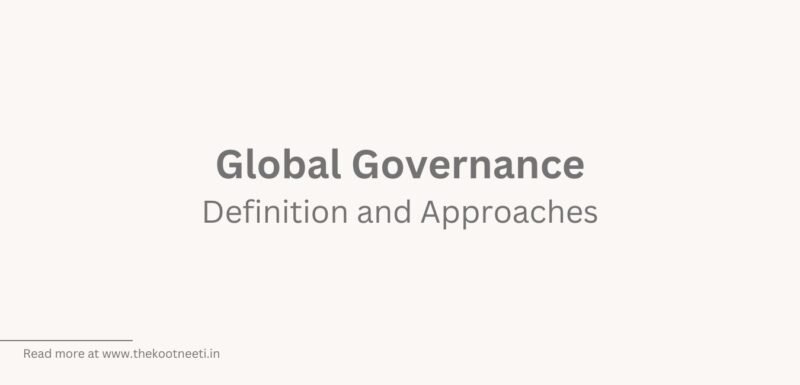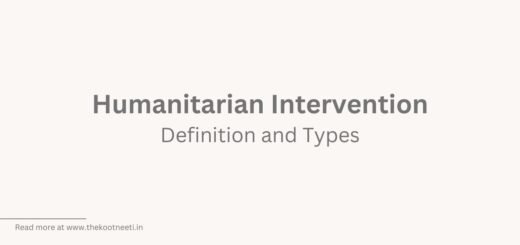Global Governance; Definition and Approaches

Global governance refers to the mechanisms, processes, and institutions through which global issues are addressed and managed. It involves the coordination of the actions of states, international organizations, and other non-state actors in order to address global challenges and to promote cooperation and stability at the global level.
Global governance includes a wide range of issues, such as global security, economic development, human rights, and environmental protection. It involves the use of a variety of mechanisms, such as international law, diplomacy, and multilateral institutions, to address these issues and to coordinate the actions of states and other actors.
Global governance has become an increasingly important issue in international relations and global politics as the world has become more interconnected and interdependent. The emergence of global challenges, such as climate change and pandemics, has led to a greater need for effective global governance mechanisms in order to address these issues and to promote global cooperation and stability.
There are a number of different approaches to global governance, including:
- State-centric global governance: This approach emphasizes the role of states in shaping global governance and in addressing global challenges. It suggests that states are the primary actors in global governance and that they should take the lead in addressing global issues.
- Multilateral global governance: This approach emphasizes the role of international organizations and multilateral institutions in shaping global governance. It suggests that global governance should be based on cooperation and coordination among states and international organizations.
- Private sector global governance: This approach emphasizes the role of the private sector, including corporations and business organizations, in shaping global governance. It suggests that the private sector can play an important role in addressing global challenges and promoting global cooperation.
- Civil society global governance: This approach emphasizes the role of non-governmental organizations (NGOs), advocacy groups, and other non-state actors in shaping global governance. It suggests that civil society actors can play a significant role in advocating for issues such as human rights, social justice, and environmental protection.
- Networked global governance: This approach emphasizes the role of networks and networks of networks in shaping global governance. It suggests that global governance can be based on decentralized networks of actors, rather than on centralized institutions or hierarchical structures.
Here are some pros and cons of global governance:
Pros:
- Global governance can help to address global challenges that cannot be solved by individual countries acting alone, such as climate change, terrorism, and pandemics.
- It can promote cooperation and coordination among countries and help to prevent conflicts.
- It can help to ensure that the global system is more equitable and that the interests of all countries are taken into account.
- It can help to establish and enforce global rules and norms, such as those related to trade, human rights, and the environment.
Cons:
- Global governance can be slow and cumbersome, and may not be able to respond quickly to changing circumstances.
- It can be difficult to get all countries to agree on common actions and policies.
- It can be challenging to enforce global rules and norms, especially in cases where powerful countries are unwilling to comply.
- There is a risk that global governance may be dominated by a few powerful countries or organizations, leading to a lack of representation and accountability.


















